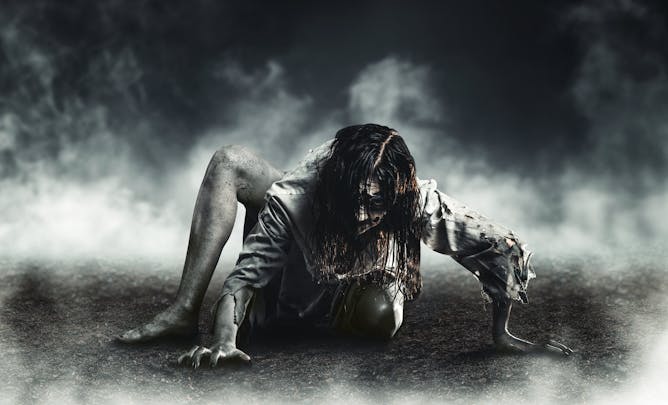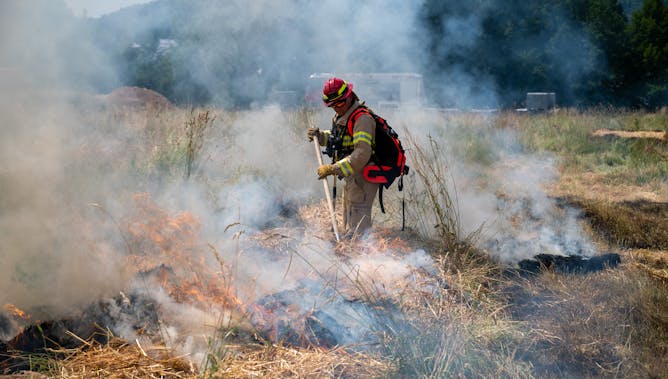|
|
|
|
Is Australia’s political system letting down its citizens? It’s an ever-present question that has reemerged in the wake of the Voice to Parliament defeat. Many on the yes side believe the outcome shows our system is tilted in favour of spoiling tactics and isn’t up to the challenge of delivering meaningful change. The “no” case focused on the risks of change, and in so doing evinced support for the status quo.
So is our system working well and, if not, is change possible? Today The Conversation’s chief political correspondent Michelle Grattan tackles this question in her House of Representatives Speaker’s Lecture.
Scrupulous and non-partisan, Grattan is among Australia’s most highly-regarded and experienced political observers. It is hard to think of anyone better placed to perform a health check of our political system, and this one is forensic.
Grattan’s diagnosis starts with a worrying list of problems: a cynical and disillusioned electorate, a political system that doesn’t attract the best people into parliament, a public service that has been found wanting, a secretive approach to information and accountability, declining major parties, media driven by clicks and ratings, and social media that debases political discourse.
The solutions identified by Grattan will require patience, hard work and an appreciation of nuance: “We should acknowledge the picture is never black or white. We do have a robust democracy, a "clean” voting system, strong institutions, freedom of expression, various checks and balances, vigorous media. Our compulsory voting system, while flawed in theory by denying people the right to opt out, is a gem in practice, in pushing our politics towards a broad centre.“
Grattan suggests seven areas for improvement ranging across the parliament, the public service, the media and the education system. It’s a thoughtful, constructive and ultimately hopeful contribution to a discussion that should matter to us all.
|

|
Misha Ketchell
Editor
|
|

Michelle Grattan, University of Canberra
At a time when many are disillusioned with politics, Michelle Grattan’s Speakers Lecture explores how the political system is letting down the Australian public and how it can do better.
|

Bill Hare, Murdoch University
In May, the Northern Territory government greenlit the mammoth Beetaloo Basin fracking project. But they did so based on a report with optimistic projections on offsets and emissions.
|

Janet Davies, Queensland University of Technology; Jo Douglass, The University of Melbourne; Joy Lee, Monash University
If you’ve got hay fever, or asthma, or both, it’s important to make sure they’re well managed.
|

Ben Phillips, Australian National University
The ACCC has published calculations for two children in care five days a week. More typical is one child in care two days a week. The typical cost is 5% of after-tax income, not 16%
|

Harry Hobbs, University of Technology Sydney; Joe McIntyre, University of South Australia; Stephen Young, University of Otago
Pseudolaw looks a bit like law. It uses legal texts and sounds like something a lawyer might say. But it does not follow normal legal rules. So where did it come from, and why it is so worrisome?
|

Jane O’Connor, Birmingham City University
Britney Spears’ memoir illustrates once again the potential lifelong damage that can be caused by being a child star.
|

Ali Alizadeh, Monash University
Despite its neglect, Australian horror is alive and kicking – and crawling on the floor, frightfully howling at the moon, and swimming with creepy serpents in a lake.
|

Stephen Garnett, Charles Darwin University; Aaron M. Lien, University of Arizona
Only after a species is identified and listed by taxonomists can it be protected. Yet we still don’t have one globally agreed-upon list of every species. A new 74-nation survey points to the solution.
|

Tim Curran, Lincoln University, New Zealand; Md Azharul Alam, Lincoln University, New Zealand; Tanmayi Pagadala, Lincoln University, New Zealand; Thomas Maxwell, Lincoln University, New Zealand
Redesigning agricultural landscapes to plant fire-retardant crops could help mitigate wildfires in an increasingly fire-prone world.
|
Politics + Society
|
-
Michelle Grattan, University of Canberra
John Howard, Kevin Rudd, Julia Gillard, Tony Abbott, Malcolm Turnbull and Scott Morrison have signed a statement
-
Terry Goldsworthy, Bond University; Gaelle Brotto; Tyler Cawthray, Bond University
Certain offences have shown increases in Victoria, NSW and Queensland over the past couple years, but the overall youth crime trend lines have been declining in the past decade.
-
Vicki Lowik, CQUniversity Australia; Amanda-Jane George, CQUniversity Australia
Sexual assault trials can compound a victim/survivors trauma, drag on for years and bring them face to face with their attacker. Is having dedicated sexual assault courts the answer?
|
|
Health + Medicine
|
-
Enzo Palombo, Swinburne University of Technology
‘Fried rice syndrome’ refers to food poisoning from a bacterium called Bacillus Cereus, which becomes a risk when cooked food is left at room temperature for too long.
-
Kathy Boschen, Flinders University; Caroline Phelan, Flinders University
Over 20% of people diagnosed with brain cancer survive longer than five years. But the NDIS may not recognise their need for support to live, work, learn and play.
|
|
Science + Technology
|
-
Hannah Fraser, The University of Melbourne; Elliot Gould, The University of Melbourne; Timothy H. Parker, Whitman College
246 scientists looked at the same data sets and drew very different conclusions.
|
|
Environment + Energy
|
-
Kim Johnson, La Trobe University
Astronauts living and working on the Moon will need something to eat. The Growing Beyond Earth program supports international space crop research.
|
|
Education
|
-
Howard Manns, Monash University; Jessica Kruk, The University of Western Australia; Michael C Ewing, The University of Melbourne; Sharyn Graham Davies, Monash University
Researchers are watching Australians’ knowledge of Indonesian language and culture slowly die of neglect.
|
|
Books + Ideas
|
-
Louise Pryke, University of Sydney
Some of popular culture’s most famous ghosts and demons have roots in ancient Mesopotamia. What did ancient humans believe about the supernatural? And what stories did they tell?
|
|
Business + Economy
|
-
Antonia Settle, The University of Melbourne
A new study discredits the belief that most Australians have little understanding or interest in their superannuation.
-
Bernard Walker, University of Canterbury; Danaë Anderson, Te Herenga Waka — Victoria University of Wellington; Julienne Molineaux, Auckland University of Technology
Bringing together worker, business, and government representatives helped set clearer rules for everyone on public holidays. We need to try that same approach to lift NZ’s poor productivity.
|
|
| |
|
|
|
|
| |
| |

|
| |
| |
| |
Featured Events, Courses & Podcasts
|
View all
|
|
1 January 2023 - 7 October 2026
•
|

|
7 November 2023
•
Sandy Bay
|

|
21 November 2023
•
Hobart
|

|
21 - 22 November 2023
•
Perth
|

|
|
|
|
| |
| |
| |
| |
| |
|
|
|
|
|
|
|